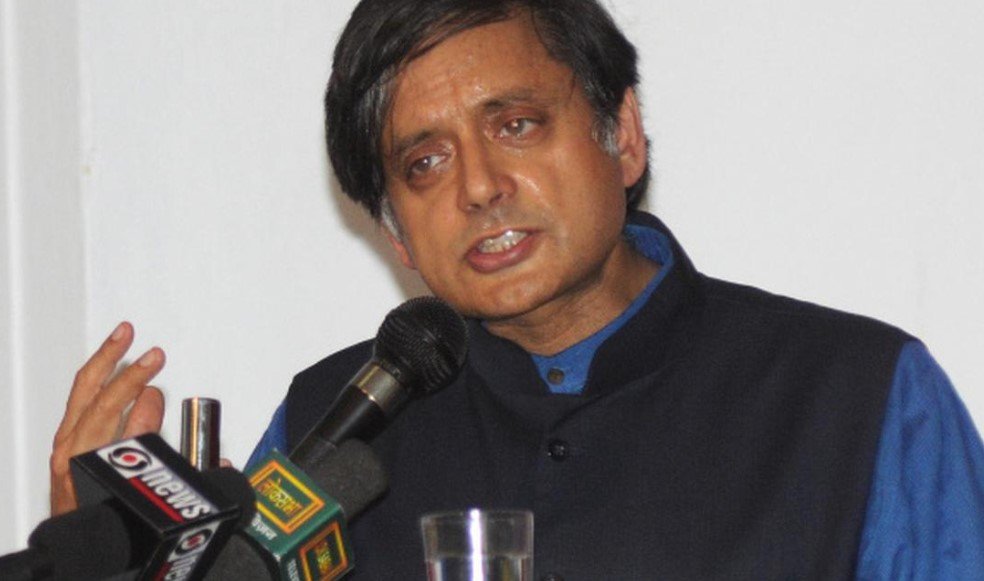India’s message to Pakistan is crystal clear: acts of cross-border terrorism won’t go unanswered. Congress MP Shashi Tharoor, leading an all-party delegation in the United States, made this point loud and clear, signaling a firm stance in the wake of recent terror attacks. His remarks during a session at the Indian Consulate in New York underline India’s resolve to hold Pakistan accountable.
The delegation, traveling through key countries in the Americas, is on a mission to counter false narratives and spotlight Pakistan’s alleged support for terrorism, following the tragic Pahalgam attack. Tharoor’s message? No more impunity for cross-border violence.
Tharoor’s Strong Words Strike a Chord in Washington
Tharoor didn’t mince words during the session. “You can’t just walk across and kill,” he said, emphasizing that Pakistan’s alleged attempts to incite terror on Indian soil would come at a price. It was a reminder to the international community about India’s ongoing struggle with terrorism and the need to address the root causes behind it.
The tone was serious but measured. Tharoor stressed that the delegation’s goal is to build awareness and solidarity. “We’re here to dismantle Pakistan’s false propaganda,” he explained. “It’s about showing the truth behind the violence and urging global partners to stand with India.”
The statement comes at a delicate time, with tensions running high after the Pahalgam attack shook the region and sparked outrage in New Delhi. Tharoor’s visit aims to galvanize international support and ensure the narrative reflects India’s position accurately.

Diplomatic Push Across the Americas
The delegation’s itinerary isn’t random. With stops planned in Guyana, Panama, Colombia, Brazil, and the US, India is widening its diplomatic reach. This effort is part of a broader strategy by the Union Government to engage with diverse global audiences and cut through misinformation.
Each country offers a unique platform. For instance, Guyana and Panama are key hubs for India’s diaspora, helping build grassroots awareness. Brazil and Colombia are emerging players on the global stage where India seeks closer ties. And the US remains a critical partner with deep geopolitical influence.
Tharoor’s leadership as a well-known parliamentarian and former diplomat adds weight to the outreach. His articulate framing of India’s concerns makes the case resonate beyond official corridors and into public discourse.
A Message to Pakistan: No More Safe Havens
Central to the delegation’s message is the insistence that Pakistan can’t provide sanctuary for terrorists or use cross-border violence as a political tool. Tharoor reminded audiences that India’s response will be firm and coordinated.
“You cannot expect to just cross a border and kill with impunity,” he said. “There will be consequences. Pakistan will have to pay the price for supporting terrorism.” This blunt language is part of a broader Indian government push to spotlight Pakistan’s alleged involvement in terror networks.
The Pahalgam attack, in particular, has sharpened India’s focus. It was a brutal reminder of the real human cost of unchecked militancy. India wants the world to understand the stakes and pressure Pakistan to curb support for militant groups.
Balancing Diplomacy and Strength
While the rhetoric is tough, the delegation’s approach also recognizes the need for diplomatic finesse. India is keen to maintain open channels and build coalitions, not just issue ultimatums.
That’s why the delegation combines hard-hitting statements with efforts to engage foreign lawmakers, diaspora communities, and media. The aim is to create a sustained, credible narrative that counters Pakistan’s propaganda machine.
And it’s not just about words. India is pushing for tangible action from allies — whether it’s sanctions, tighter controls on terror financing, or intelligence sharing. The diplomatic outreach underscores India’s broader vision of fighting terrorism with a multi-pronged global strategy.
Setting the Record Straight Amid Global Conversations
One key challenge India faces is misinformation. Pakistan’s efforts to portray itself as a victim while accusing India of human rights abuses complicate the picture.
Tharoor’s delegation is part of a concerted attempt to reset the narrative. By sharing firsthand accounts, evidence, and official statements, they hope to sway opinion in key capitals.
In doing so, India is looking to build a more sympathetic international environment that supports its security concerns without getting bogged down in rival propaganda wars.
Voices from the Ground and the Halls of Power
Tharoor’s trip isn’t just about formal diplomacy. It’s also a chance to connect with ordinary Indians abroad and hear their concerns. Many diaspora members have been vocal about terrorism and security issues back home.
He shared that these conversations remind him why the fight against terrorism matters so deeply. “It’s personal for many,” he said, reflecting on stories from New York’s Indian community.
Meanwhile, in Washington, officials seem to be listening closely. The US has traditionally been a strong ally on counterterrorism, and India’s message finds a receptive audience amid ongoing geopolitical shifts.
The delegation’s next stops will be crucial in sustaining this momentum and turning words into policies.
What Comes Next?
The road ahead isn’t easy. Pakistan’s role in terrorism remains a thorny issue, tangled with decades of history and diplomacy.
Still, India’s message is firm: borders are not open highways for violence. There will be costs for those who try to exploit them.
Tharoor’s US visit is a reminder that this fight plays out not just on the ground but also on global stages — in conversations, meetings, and alliances.
